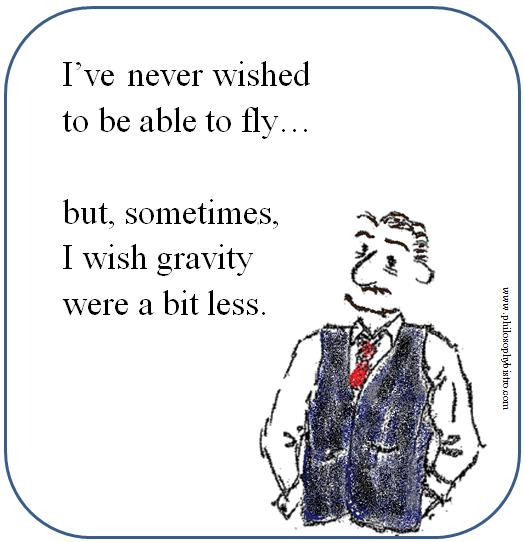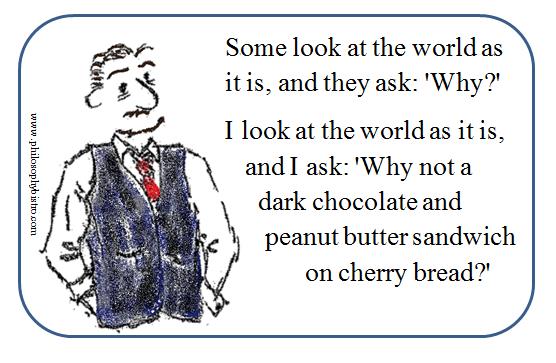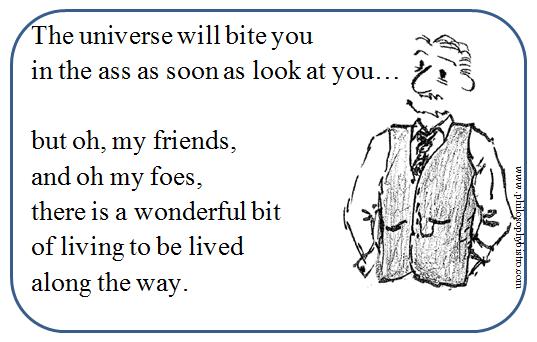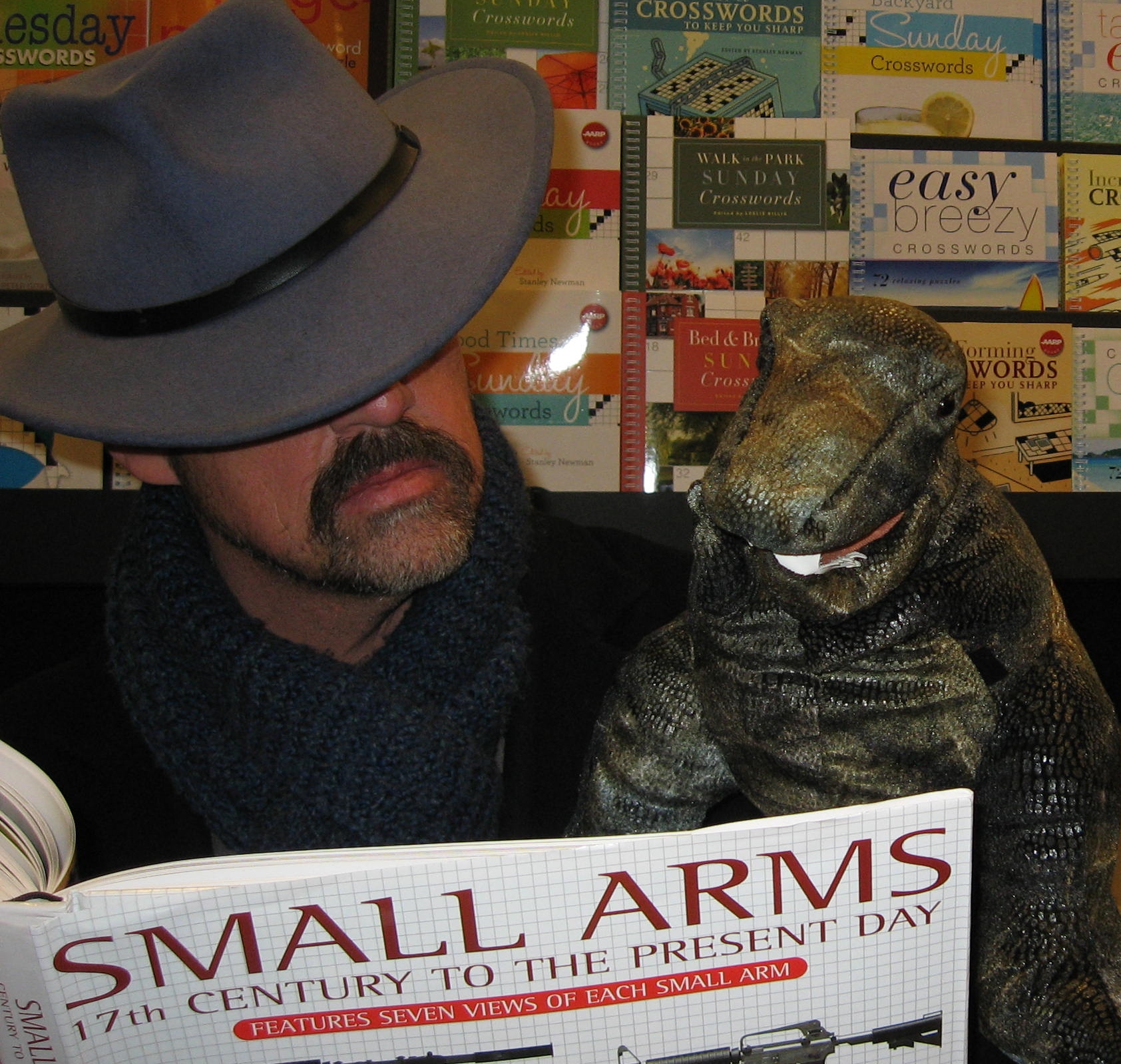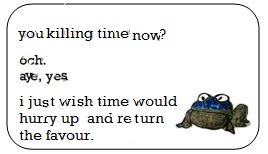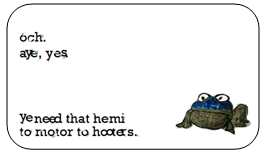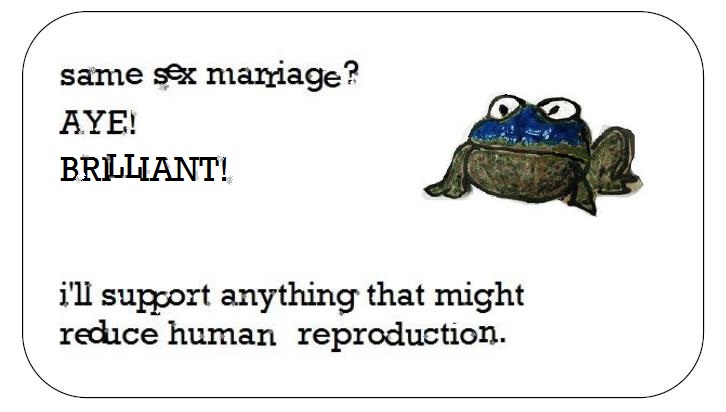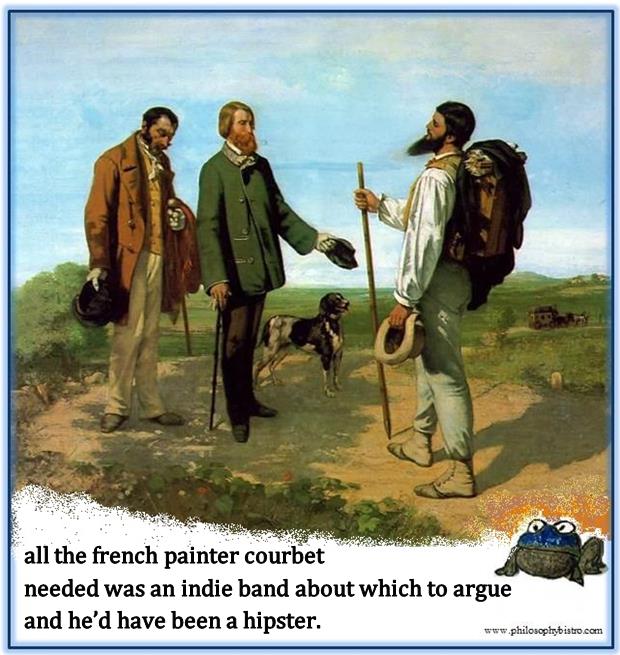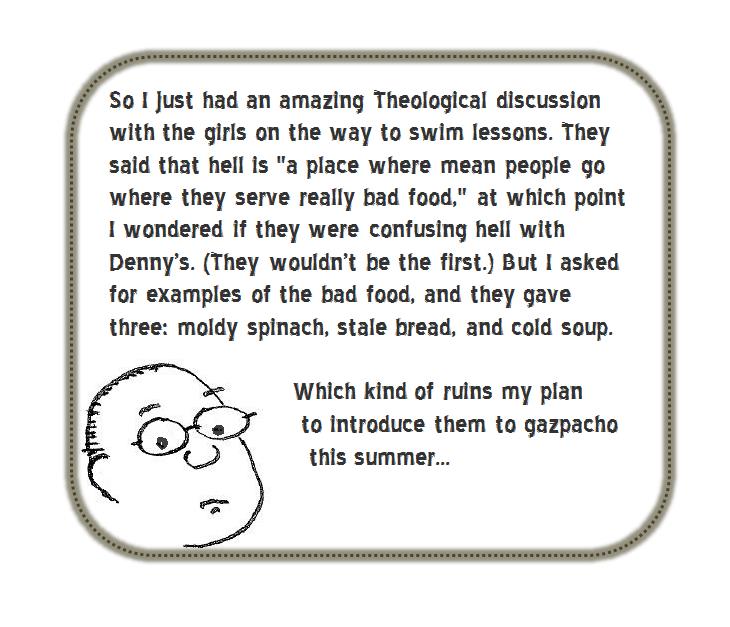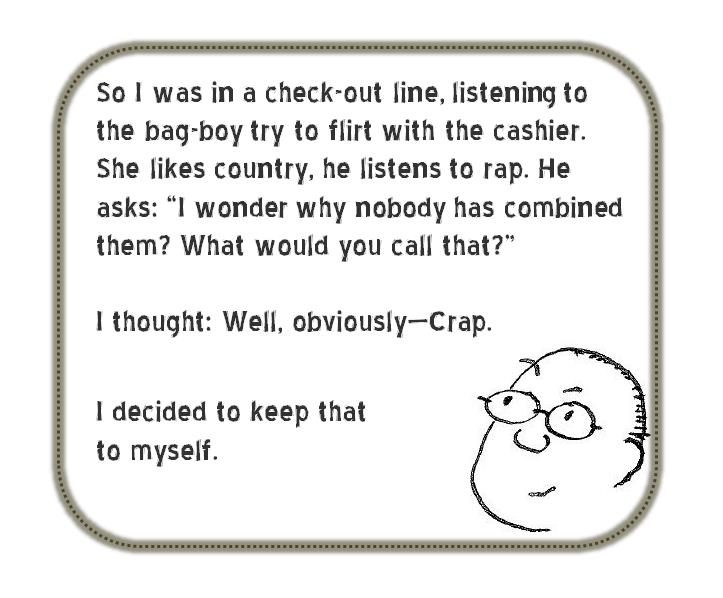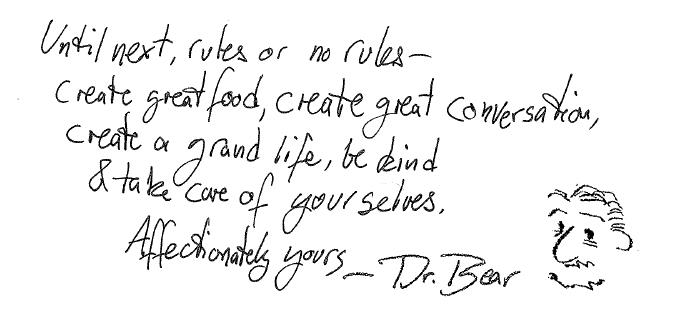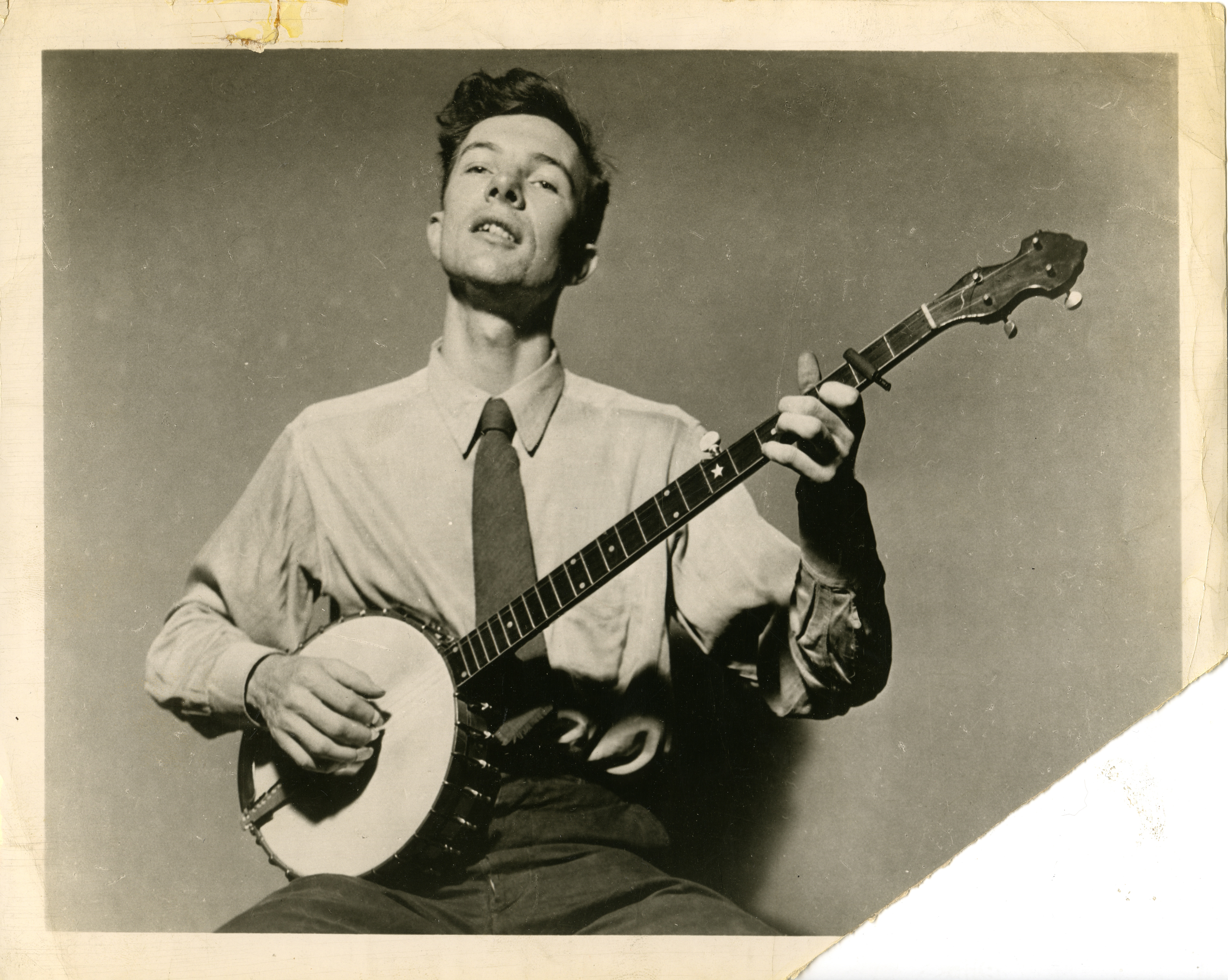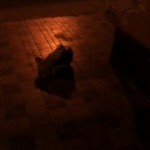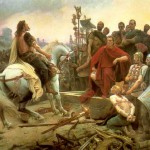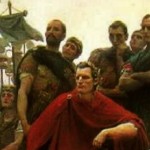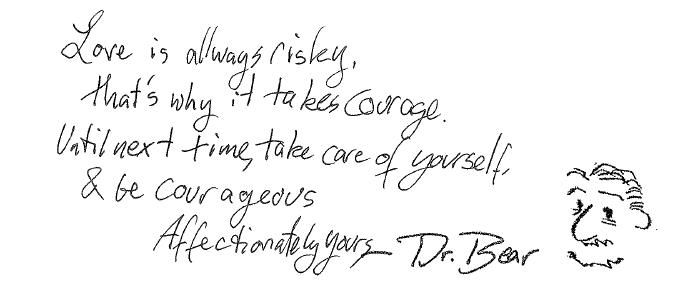Welcome back to the Philosophy Bistro!
If my count is correct, this is the 50th of the official Entrées….
Technically, this is the 156th. There were also 32 recipes,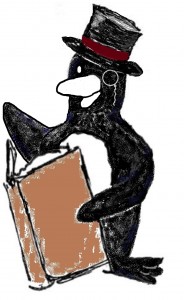
16 very thought-provoking articles by Brando,
12 audio-files (pardon the pun), 5 or 6 by Wode, one by Anno,
8 reruns, and then all the jokes & cartoons……
Thank you, Peirce.
As I was saying, this is the 50th of the official Entrées produced at Robert’s Philosophy Bistro. Before heading into the next 50, I thought I would take some time for basic introductions.
Robert’s Philosophy Bistro is a clean, comfortably lighted place to enjoy fine food, fine drink, good company and good conversation. In addition to our food specials, there are weekly special entrées which are ideas: ideas we hope amuse or prompt your ideas, or which can be taken home, pondered over, adapted and served new–like the weekly recipes. Most of these are philosophical in nature, but our notion of philosophy is rather broad.
Our bistro is mostly imaginary, but is currently located at 241 East Main Street in Johnson City, Tennessee; if you have suggestions for relocating, we are always up for a road-trip. Like most restaurants, it is a non-profit generating community group that would love to actually generate income. If you have any ideas (or any money) feel free to offer suggestions (or donations).
If you cannot afford a donation, please leave a question. I mean that. I try to answer any of the interesting questions I can get, and tend to run low on new ideas from time to time.
If you cannot afford a question, help yourself to one of ours. We have plenty.
Please also let us know who you are by leaving a not in our Guest Book.

The cast of characters is a fluctuating group of ragamuffins, ne’er-do-wells, pirates and characters, all with colorful personalities and back-stories–the same as most restaurant kitchens. Our food is phenomenal–although we will serve noumenal take-away–and a good deal of the staff is phenomenological.
As of this writing they include the following:
I am your host, Dr Bear.
am your host, Dr Bear.
Nominally, I am in charge, as well as serving as maître d’hôtel, Master of Ceremonies, menu planner, and, of course, referee. By nature I am a gentleman, a philosopher and a raconteur, but occasionally I am also practical. Over the course of the last year, I have discovered I am also a bit of an idealist, and much more optimistic than I anticipated. I may be fictional, but bear a strong resemblance to at least one non-fictional person.
This is not accidental.
Dr Bear tends to say things like this:
In case you were wondering: yes, I really am a doctor. Years ago I earned a PhD, and my areas of research were originally German Enlightenment Philosophy and its critics, and then Social Practices & Cross-cultural understanding. May I bring you some more bread?
Wode Toad is the chef.
It is also quite possible that he really is in charge. He is as complex, as mysterious, and as dangerous as a Sriracha Haggis. If forced to suffer fools, he will be sure to return the suffering with interest. His cooking is even faster than his wit, which is saying something. He is a classics scholar with a knack for high stakes investments, so he cooks here and advises us on whiskeys.
He serves as the pessimistic, direct, and occasionally nihilistic counter-weight to Dr Bear’s optimism and courtesy.
He says things like:
Lately, Wode has also disappeared, and I haven’t seen him for a week or so.

He said something about travelling; he also talked about warmer places.
Probably back to Mexico or South Africa, then. If he was going back to Argentina, he would have told Peirce, and, of course, he cannot go back to Eastern Asia, or even Oceana, because of “the incident.”
 Next is Brando, the sous-chef.
Next is Brando, the sous-chef.
Like Dr Bear, he is an underemployed philosopher and social theorist. He is down to earth but full of whimsy, continental but a Kentucky gentleman, very smart but very kind. The name of the Bistro was his idea. He writes wonderful entrées under his own byline. Although Dr Bear and he try to insert formal philosophy when they can, life seems to intervene.
He seems to be involved in a long-term experiment that consists in raising two lovely young girls, but then again, they might be involved in an experiment that consists in raising him. We hope it is the former, since the chances of the girls turning out OK is substantially more promising.
He is currently on a sabbatical from the Bistro, devoting more time to the girls, and writing a novel.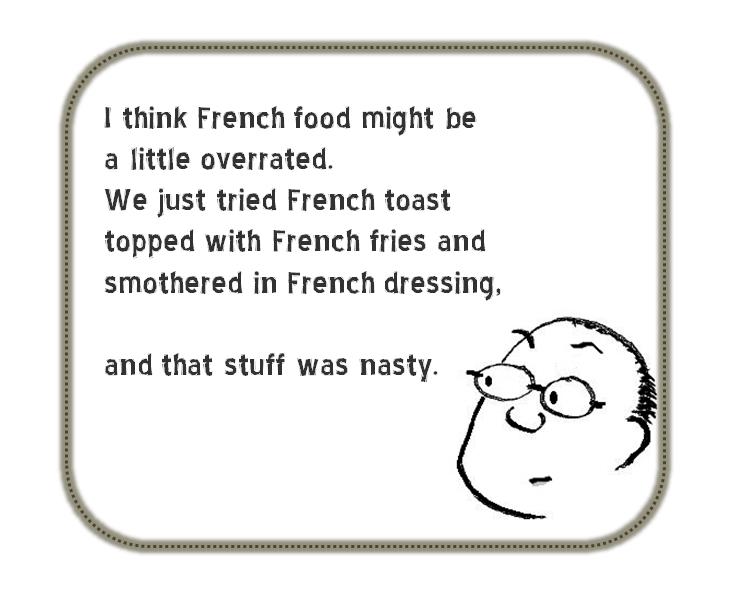
Brando says things like:
Since I am currently two staff members short, the shinobi has stepped up to the plate to fill the gap. I haven’t really seen much of her (Mousy occasionally likes to sneak up on her, offer her pastry & chat with her), but she is fast and hard-working, and she never complains.
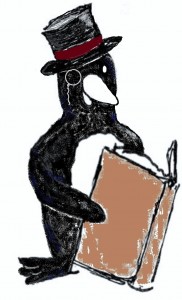 Peirce is the dishwasher, although he has also had to step up and step into the kitchen. He is a proud citizen of the United Kingdom, being from one of its territories. There are bits of the war with Argentina he would prefer to forget, but he seems happy enough with his work and his library. He is a voracious and omnivorous reader reading almost everything he can get his hands on, and will write book reviews for us if I can get him to stop reading.
Peirce is the dishwasher, although he has also had to step up and step into the kitchen. He is a proud citizen of the United Kingdom, being from one of its territories. There are bits of the war with Argentina he would prefer to forget, but he seems happy enough with his work and his library. He is a voracious and omnivorous reader reading almost everything he can get his hands on, and will write book reviews for us if I can get him to stop reading.
I once ask a friend who is a Café manager if I would get into trouble having a penguin living in my walk-in cooler, but as I was saying it, I realized how ridiculous it sounded, and how illegal our kitchen is anyway.
Peirce says things like: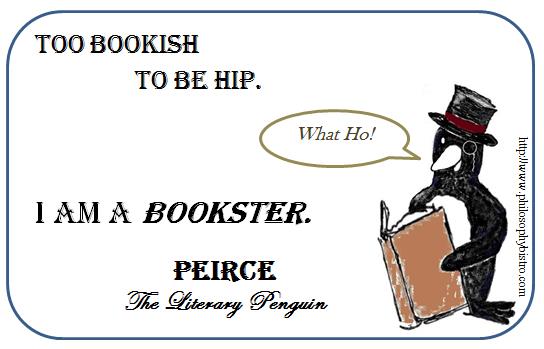
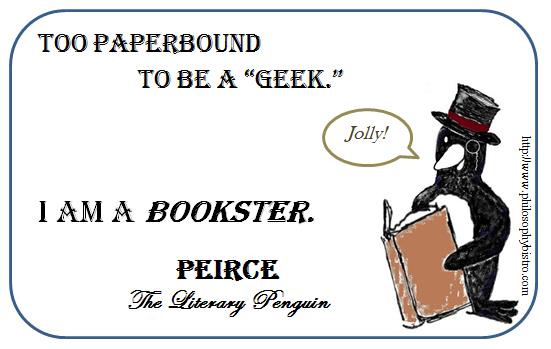 The newest member of our staff is our pastry cook and baker, Anno Mouse.
The newest member of our staff is our pastry cook and baker, Anno Mouse.
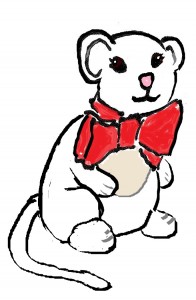 He goes by Mousy. He is probably the quietest of the Bistro staff, but this doesn’t necessarily mean he doesn’t have anything to say. Mousy is the introvert at the Wonderland Tea Party that is our kitchen. Mousy is more of a dreamer, and inclined to listen to others when they need to be listened to, and to believe the best of all creatures. He is a hopeless romantic, and cripplingly sentimental. He tends to read fantasy, and is more interested in psychology than in philosophy.
He goes by Mousy. He is probably the quietest of the Bistro staff, but this doesn’t necessarily mean he doesn’t have anything to say. Mousy is the introvert at the Wonderland Tea Party that is our kitchen. Mousy is more of a dreamer, and inclined to listen to others when they need to be listened to, and to believe the best of all creatures. He is a hopeless romantic, and cripplingly sentimental. He tends to read fantasy, and is more interested in psychology than in philosophy.
He does have a temper for bullies, and for people who would take away rights, animal or other.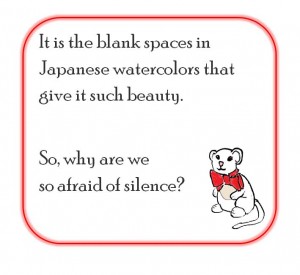
Mousy tends to say things like:
On occasion, we have a our fantasy IT person Alex drop by, but even in fantasy’s it is hard to schedule somebody to work on your computer.
All of us here at the Bistro believe in food and good, wide-ranging conversations, and we hope our readers & guests do to. I would like to say we believe in each other as well, but there is a rumor that at least one of us is fictional.
Of course, there is also a rumor that the bistro itself does not exist.
If it didn’t, would you be here?
Would that make the rest of us dis-fictional?
Drop by again, anytime.
.PS: Visit us on facebook at https://www.facebook.com/PhilosophyBistro, or e-mail us at DrBear@philosophybistro.com. 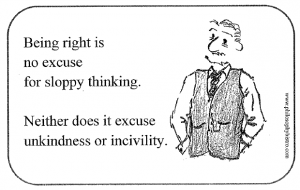
….and remember the Dr Bear motto:

